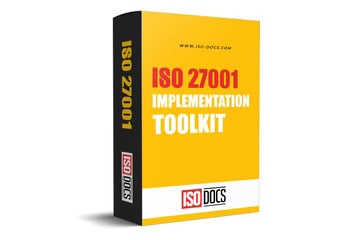ISO 22301: Clause 4 - Context Of The Organization
Introduction
Context of the organization is defined as the combination of internal and external factors that can affect the organization's ability to manage its risks. It provides the basis for setting the organization's risk management objectives.
Organizations operate in a complex and ever-changing environment. To be able to manage its risks, an organization needs to understand the factors that can affect its ability to meet its objectives.
ISO 22301: Clause 4 - Context of the Organization is an important part of the standard that specifies the requirements for an organization to establish, implement, maintain, and continually improve its risk management system.

What is Clause 4 of ISO 22301?
Clause 4 of ISO 22301 is devoted to the implementation of the Business continuity management system. This is where organizations set out how they will go about establishing, implementing, operating, monitoring, reviewing, maintaining and continually improving their BCMS.
The standard provides detailed guidance on what should be included in a BCMS, and how it should be managed. It covers all aspects of business continuity, from risk assessment and business impact analysis to developing strategies and plans, to training and exercises.
The sub-clauses of clause 4 are as follows:
- 4.1 Identifying the organization's objectives, scope, and approach.
- 4.2 Conducting a risk assessment.
- 4.3 Developing the business continuity plan.
- 4.4 Implementing the business continuity plan.
ISO 22301 is designed to help organizations protect themselves from the effects of disruptive incidents. By having a well-designed and well-managed BCMS, organizations can reduce the likelihood of an incident occurring, and minimize the impact of incidents that do occur.
Clause 4 of ISO 22301 sets out the requirements for implementing a BCMS.
Organizations are required to:
- Establish a business continuity policy
- Appoint a business continuity manager
- Establish business continuity objectives
- Establish and maintain business continuity plans
- Train and exercise employees
- Test business continuity plans
- Review and update the BCMS
- Audit the BCMS
- Review and update the business continuity policy.
Importance of ISO 22301: Clause 4
Clause 4 of ISO 22301 is critical because it lays the groundwork for the business continuity management system (BCMS). It necessitates that organizations identify the internal and external factors that may have an impact on their ability to achieve their goals and provide products and services to customers.
Furthermore, clause 4 requires organisations to identify interested parties and their needs, which helps to ensure that the BCMS is aligned with stakeholders' needs and expectations.
It also necessitates that organizations determine the scope of their BCMS, which aids in defining the system's boundaries and ensuring that it is effectively implemented.
Benefits of Implementing Clause 4 of ISO 22301
The benefits of implementing Clause 4 of ISO 22301 are many and varied. By having a formal Business Continuity Management System (BCMS) in place, organizations can be sure that they have the means to protect themselves against potentially devastating disruptions.
A well-designed BCMS will help an organization to anticipate and respond effectively to a wide range of potential threats, including natural disasters, cyber-attacks and pandemics.
It will also ensure that the organization is able to maintain its critical operations and services in the event of an incident.
In addition to the obvious benefits of improved security and resilience, implementing Clause 4 of ISO 22301 can also lead to a number of other benefits, including:

- Reduced downtime in the event of an incident.
- Improved customer satisfaction.
- Greater employee satisfaction and engagement.
- Reduced insurance premiums.
Implementing Clause 4 of ISO 22301 is a complex process, but the benefits are clear. Organizations that take the time to put in place a comprehensive BCMS will be better prepared to deal with whatever disruptions come their way.
Conclusion
Clause 4 of ISO 22301 is an important part of the standard because it establishes the organisational context, which is critical for the effective implementation of a business continuity management system.
Clause 4 requirements assist organisations in identifying and assessing risks, determining the scope of their BCMS, and ensuring that the system is effectively implemented and maintained.
Overall, Clause 4 serves as a solid foundation for the BCMS and is an important part of the ISO 22301 standard.



